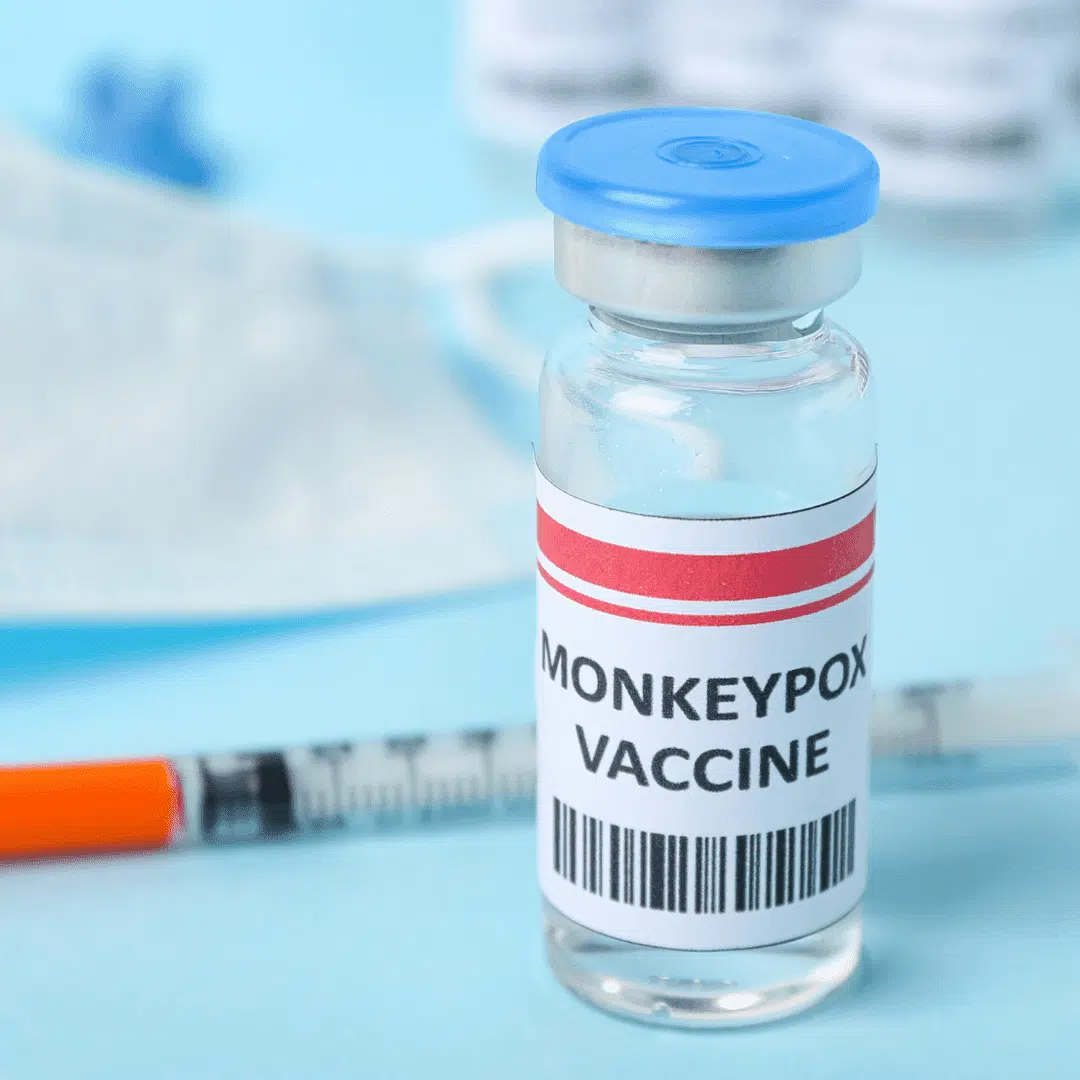Mpox (previously known as Monkeypox) is a rare infection that appears on the skin as raised spots, which turn into small blisters filled with fluid. These blisters eventually form scabs, which later fall off. The skin symptoms of mpox have the potential to be confused with infected eczema, particularly eczema herpeticum, which is a serious viral herpes infection. For more information on the other symptoms of mpox, which appear before the skin symptoms, please see the NHS website. For more information on eczema herpeticum, please see this page.
Children and adolescents with a history or presence of atopic eczema are at risk of more severe mpox. If you suspect that you or your child has mpox – or eczema herpeticum – please seek immediate same day medical advice.
Mpox vaccine (MVA-BN) and cautions for people with eczema
The vaccine recommended to protect against mpox is a third generation Modified Vaccinia Ankara (MVA) vaccine, which was first developed in the 1950s for the prevention of smallpox. See the UK Health Security Agency (UKHSA) website for more information. For most people, the mpox vaccine has a favourable safety profile.
People with atopic eczema, though, may be more likely to experience certain side effects from the vaccine. These include more intense local skin reactions (such as the skin becoming red or darker than usual, depending on skin tone, swelling and itching) and other general symptoms (such as headache, muscle pain, feeling sick or tired), as well as a flare-up or worsening of their eczema. In rare cases, people with atopic eczema have experienced serious reactions to the vaccine with widespread infection of the skin.
National Eczema Society and the UKHSA recommend that people with atopic eczema seek a risk assessment before taking the vaccine in order to balance the risk from exposure to mpox and the risk of possible side effects from vaccination.
The MVA vaccine is currently being offered to people in the UK at high risk of exposure to mpox. Note there have been challenges reported in obtaining sufficient supplies of the vaccine (as of August 2022). The UKHSA recommends MVA is offered to:
- healthcare workers caring for patients with confirmed or suspected mpox
- men who are gay, bisexual or have sex with other men, and who have multiple partners, participate in group sex or attend sex on premises venues. Staff who work in these premises may also be eligible
- people who have been in close contact with someone who has mpox – ideally they should have the vaccine within 4 days of contact, but it can be given up to 14 days after.
References
- NHS webpage on mpox: https://www.nhs.uk/conditions/monkeypox/
- National Eczema Society webpage describing eczema herpeticum: https://eczema.org/information-and-advice/living-with-eczema/skin-infections-and-eczema/
- UKHSA vaccination information: https://www.gov.uk/government/publications/monkeypox-vaccination-resources/monkeypox-waiting-for-your-vaccination
- UKHSA information on the smallpox (MVA) vaccination: https://www.gov.uk/government/publications/monkeypox-vaccination-resources/protecting-you-from-monkeypox-information-on-the-smallpox-vaccination
- UKHSA recommendations for the use of pre and post exposure vaccination during a mpox incident: https://www.gov.uk/government/publications/monkeypox-vaccination

